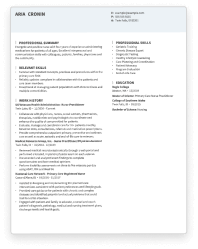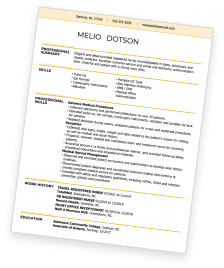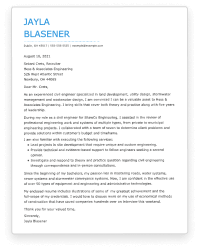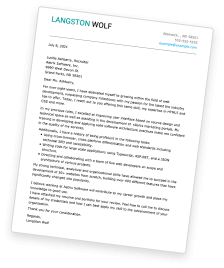Pharmacy Manager Resumes: Overview
As a pharmacy manager, you play a vital role in overseeing pharmaceutical operations. From managing staff to ensuring regulatory compliance, your responsibilities are diverse.
Pharmacy managers handle prescriptions, control inventory, develop and implement policies and procedures, manage budgets and collaborate with other healthcare providers.
Pharmacy managers work in a variety of settings, including;
- Hospital pharmacies
- Retail pharmacy chains
- Long-term care facilities
- Specialty pharmacies
- Mail-order pharmacies
To excel in this role, you need a unique set of skills and qualifications. Excellent communication, leadership abilities, attention to detail, business acumen, and customer service skills are crucial to your success.
Explore our pharmacy manager resume examples, downloadable templates and resume writing guides to learn how to showcase these skills effectively.
With these resources, you’ll be able to make a great resume for your next pharmacy manager position!
Pharmacy Manager Resume: Choose a Format
To write a pharmacy manager resume that gets noticed, start by choosing a resume format that highlights your unique strengths as a pharmacist.
There are three formats to consider for your resume: chronological, functional, or combination. Let’s take a look at each format’s benefits and potential drawbacks.
Chronological Resumes for Pharmacy Managers
A chronological resume format is a strategic choice for pharmacy managers aiming to emphasize their experience and career progression.
Chronological resumes are the most popular format for a resume. They are also easily scanned by applicant tracking systems (ATS), improving your chances of having your resume reviewed by a hiring manager.
A detailed work history allows you to showcase consistent professional growth, increased responsibilities and achievements over the years.
To create a chronological resume, you list your previous jobs chronologically, starting with your most recent position and working backward. Then, underneath each job entry, include bulleted sentences describing your job duties, skills gained and accomplishments to provide a complete picture of your career.
Functional Resumes for Pharmacy Managers
A functional resume is ideal for a pharmacy manager with a diverse skill set acquired from a different industry or job title. This format emphasizes your skills and abilities instead of focusing on your work history.
A functional format allows employers to easily recognize your qualifications without the constraint of a timeline. This approach is particularly beneficial when your career trajectory involves a mix of roles or a significant gap between jobs.
It makes it easier for potential employers to assess your suitability based on skill proficiency rather than your previous job titles.
However, it is important to note that a functional resume may not be compatible with applicant tracking systems (ATS), and employers may prefer receiving a detailed work history. That doesn’t mean you can’t use a functional resume successfully, but it does have some limitations.
Combination Resumes for Pharmacy Manager
A combination resume blends elements of both chronological and functional formats. This format emphasizes your skills first while also providing a detailed account of your work history.
A combination format gives employers a comprehensive overview of your capabilities and a thorough work history.
This format is particularly effective when you have a diversified skill set or limited relevant work experience. By strategically combining the two aspects, you present a well-rounded professional profile.
Choosing a Resume Format
Choosing the right resume format is an essential step in creating a resume for a pharmacy manager. Choose a format that puts your experience level and skills in the best possible light.
When in doubt, most experts agree that a chronological format is always a safe choice, as it is ATS-friendly and can be customized for any experience level.
For example, if you have limited pharmacy experience, you can emphasize the transferable skills you gained in other jobs. Consider how your previous jobs relate to a pharmacy manager role.
Did you provide excellent customer service, supervise a team, or manage inventory?
Those skills are crucial to a pharmacy manager’s success, so include them when describing your previous roles to show your fit for the job.
How to Write a Pharmacy Manager Resume
Once you have chosen a format for your pharmacy manager’s resume, the next step is to create a resume outline. You will craft five key sections to fill out your resume and then consider additional sections to enhance it.
The five essential sections for a pharmacy manager resume are:
- Contact Information
- Professional Summary or Resume Objective
- Work History
- Skills
- Education
Each section provides an opportunity to help your resume stand out from the rest and help you land the pharmacy manager job you’ve been looking for!
Contact Information
Place your contact information prominently at the top of your resume, where it is easy to find. Your name should stand out but don’t make it so large that it wastes valuable page space. Always use a standard readable font and ensure your information is current and error-free.
Your contact information section should include:
- First and Last Name
- City and State
- Telephone Number
You may also include your LinkedIn profile if you like. However, ensure your profile picture and information are current and professional in appearance.
The contact information section of a pharmacy manager resume may look something like this:
Jordan Smith
Seattle, WA
jordan.smith@fake.example.com
(555) 123-4567
fake.linkedin.com/in/jordansmithpharmacy
Summary or Objective
Traditionally, most resumes include a brief introductory statement underneath the contact information. You can choose from two approaches to this statement– a professional summary or an objective statement.
A professional summary concisely overviews your most relevant skills and experience level. It is an excellent choice if you have relevant pharmaceutical experience.
A good example of a professional summary for a pharmacy manager may look something like this:
“Pharmacy manager with 5 years of experience delivering exemplary healthcare services. Effective communicator adept at implementing strategies for improving healthcare management. Skilled at staff development and building high-performing, customer-focused teams.”
An objective statement, however, is best suited to a pharmacist with limited or no experience as a pharmacy manager. A resume objective focuses on your genuine interest in the job, passion for the industry and personal qualities that make you a great candidate.
For example, a well-crafted objective statement for a pharmacy manager position might look like this:
“Dedicated pharmacist seeking new challenges in a managerial position. Eager to apply interpersonal skills, pharmacy knowledge and passion for patient care to managing a reputable and customer-focused pharmacy.”
Whether you choose a summary or an objective statement, tailor this section to each job you apply for. Use keywords from the job description where appropriate to help your resume pass through initial screenings by the ATS and get noticed by hiring managers or human resources.
Work History
Next, you will create your work history section on your pharmacy manager’ resume. Start by listing your previous jobs in reverse chronological order, starting with your most recent job and working backward.
Each job entry should include the following information:
- Job Title
- Employer’s Name
- City and State
- Dates of Employment
Then, under each job entry, write at least three bulleted sentences that describe your responsibilities and accomplishments in each role.
To make this section engaging to the reader, use strong action verbs like developed, implemented, led or streamlined. Action verbs help potential employers picture you doing the work and make your resume content more compelling.
When describing your accomplishments, use numbers and percentages to quantify your impact.
For example, instead of saying, “Implemented a new inventory management system.” Quantify your results by saying, “Increased prescription accuracy by 15% through implementing a new inventory management system.”
Quantifying your pharmacy manager resume is especially important in highlighting a specific value you offer to employers who want to see you have successfully demonstrated your skills.
Your work history section is another opportunity to tailor your resume to the job you are applying for. Read the job description carefully and consider how your experience in previous jobs has prepared you for a pharmacy manager position.
Include details showing how your experience aligns with the requirements listed in the job posting, using similar language and keywords when it makes sense.
With all that said, the work history section of your pharmacy manager resume may look something like this:
Pharmacy Manager
Wellness Pharmacy Group
Los Angeles, CA
January 2019 – Present
- Developed and implemented a comprehensive medication management system, leading to a 20% reduction in medication errors and a 15% increase in patient satisfaction scores.
- Led a team of 12 pharmacists and pharmacy technicians, fostering a collaborative environment that enhanced productivity by 25%. Introduced regular team meetings and training sessions to ensure all staff were up-to-date on the latest pharmaceutical practices and regulations.
- Streamlined inventory management processes, utilizing advanced analytics to predict stock needs and reduce waste. This initiative cut costs by 18% and improved the availability of critical medications by 30%.
- Negotiated with suppliers to secure competitive pricing on medication and pharmacy supplies, saving the company over $200K annually.
- Enhanced patient care by introducing a customer feedback system, which informed service improvements and contributed to a 10% increase in loyalty program memberships.
Skills
Next, you will create a dedicated skills section on your pharmacy manager resume that reveals specific qualifications related to the position.
Include both hard skills and soft skills relevant to pharmacy management to create a well-rounded professional profile that gets noticed.
Focus on skills mentioned in the job description so that you stand out with employers, or else select much-needed skills, such as certain technical skills, that are necessary for success in a pharmaceutical setting.
For inspiration, we have compiled a list of the top hard and soft skills for a pharmacy manager’s resume.
Top 5 Hard Skills for Pharmacy Manager Resumes
- Regulatory Compliance: Mastery of regulatory compliance is essential for pharmacy managers as it ensures the pharmacy operates within legal frameworks. Being well-versed in pharmaceutical regulations guarantees patient safety and safeguards the pharmacy’s reputation
- Team Leadership: A pharmacy manager’s success hinges on effective team leadership. Guiding and motivating pharmacy staff is crucial for optimal performance, ensuring a cohesive and motivated team. Strong team leadership directly impacts productivity, employee satisfaction, and, ultimately, the quality of patient care provided by the pharmacy.
- Inventory Management: Pharmacy managers must excel in inventory management to maintain accurate and efficient processes. Proper inventory control prevents stockouts, minimizes waste, and ensures medications are readily available for patients. Proficiency in inventory management directly contributes to smooth operations, reducing delays and enhancing overall pharmacy efficiency.
- Customer Service: Exceptional customer service is a cornerstone of a successful pharmacy, and the pharmacy manager plays a pivotal role in ensuring positive interactions. Providing outstanding service to patients and healthcare providers enhances the pharmacy’s reputation and establishes lasting relationships, contributing to customer loyalty and increased business.
- Budget Management: Pharmacy managers with solid budget management skills can control expenses while upholding high service standards. Efficient budgeting ensures the pharmacy operates within financial constraints without compromising quality. This skill is vital for sustaining profitability, allocating resources wisely, and maintaining a financially sound pharmacy operation.
Top 5 Soft Skills for Pharmacy Manager Resumes
- Communication: Effective communication is critical for pharmacy managers who interact with staff, patients, and vendors. Clear communication ensures that instructions are understood, issues are addressed promptly, and collaborations are successful. Strong communication skills enhance overall pharmacy operations and foster a positive working environment.
- Problem-Solving: Proactive problem-solving is crucial for addressing challenges swiftly and maintaining smooth operations. Analyzing situations, identifying solutions, and implementing effective strategies ensures the pharmacy’s resilience in the face of unexpected issues, contributing to continuous improvement and adaptability.
- Adaptability: Pharmacy managers must navigate changes in pharmaceutical regulations and industry trends with ease. Adaptability is key to staying ahead of evolving requirements and market dynamics. Being adaptable enables pharmacy managers to implement necessary changes seamlessly, ensuring the pharmacy remains compliant and competitive.
- Time Management: Efficient time management is essential for pharmacy managers to prioritize tasks effectively. Juggling various responsibilities requires strategic time allocation, from staff management to regulatory compliance. Strong time management skills contribute to increased productivity, reduced stress, and the ability to meet deadlines consistently.
- Conflict Resolution: Conflict resolution skills are necessary when dealing with staff or customer disputes. The ability to address conflicts diplomatically fosters a positive work environment, enhances team relationships, and ensures customer satisfaction. Being skilled in conflict resolution contributes to a harmonious workplace and maintains the pharmacy’s professional reputation.
Your skills section can be formatted in various ways, depending on your resume template or design. A typical skills section for a pharmacy manager resume may look like this:
Skills:
- Regulatory Compliance
- Team Leadership
- Inventory Management
- Customer Service
- Budget Management
- Communication
- Problem-Solving
- Adaptability
- Time Management
- Conflict Resolution
Education
Next, you will provide your educational background, starting with the most recent degree. You can also include required certifications, licenses, or advanced training in pharmaceutical management in this section, or you can create a separate additional section to highlight that information.
When listing your degrees, include the degree, the name of the institution, and its location. A graduation date is optional. Including a date can introduce bias in the hiring process regarding your age or experience level, so experts say it can be best to omit that information.
An education section for a pharmacy manager resume may look like this:
Doctor of Pharmacy
University of South Carolina – Columbia, SCBachelor of Science: Chemistry
University of South Carolina – Columbia, SC
Additional Sections
Once you have written the five essential sections of your resume, if space allows, you can consider some additional sections. Additional sections can enhance your resume and make a positive impression on potential employers as long as they are relevant to a pharmacy management position.
Some additional sections to consider include:
- Certifications
- Professional Memberships
- Languages Spoken
- Awards & Honors
Top 4 Certifications For Pharmacy Managers
Certifications can elevate your pharmacy manager resume. Many pharmacy positions require specific certifications, so pay close attention to the job requirements in each job posting you apply for. Some common certifications for a pharmacy manager include
- Pharmacy Leadership Certificate: The ASHP learning center certification validates your leadership skills and knowledge of pharmacy operations.
- Pharmacists Getting Paid Through Collaborative Clinical Services: Offered by the American Pharmacists Association, this program teaches pharmacists how to implement clinical care services that improve patient outcomes, enhance collaboration with other healthcare workers, and increase profits for the pharmacy.
- Medication Therapy Management: Obtaining a certificate in medication therapy management demonstrates your commitment to patient care. It validates your ability to interview patients, identify medication-related issues and document activities.
- Pharmacy-Based Immunization Delivery: This certification demonstrates you have the comprehensive knowledge and skills necessary to provide immunization services to patients.
10 Tips For Writing A Standout Pharmacy Manager Resume
Tailor your resume to spotlight your pharmaceutical management skills. Focus on areas such as team leadership, regulatory compliance, and inventory management. Highlight instances where your managerial expertise has positively impacted pharmacy operations.
Quantify achievements to provide evidence of your impact as a pharmacy manager. Whether you improved prescription accuracy rates, enhanced team productivity, or implemented cost-saving measures, use numbers to showcase your measurable successes.
Emphasize your regulatory compliance experience. Provide details about your knowledge of pharmaceutical regulations and your track record of ensuring strict adherence. Highlight any certifications or training that reinforce your commitment to maintaining legal and ethical standards.
Showcase your leadership and team management skills. Provide specific examples of successful team initiatives, staff development programs, or instances where you’ve effectively led your pharmacy team to achieve operational goals.
Highlight your customer service achievements. Include instances where you’ve gone above and beyond to ensure patient and healthcare provider satisfaction. Include testimonials or specific feedback to add a personal touch.
Use action verbs strategically to describe your responsibilities and achievements as a pharmacy manager. Words like “implemented,” “streamlined,” and “optimized” convey a sense of proactivity and accomplishment.
Include relevant keywords throughout your resume to optimize it for Applicant Tracking Systems (ATS). Identify industry-specific terms, such as “regulatory compliance,” “inventory control,” and “pharmacy operations,” to ensure your resume gets noticed by automated systems.
Keep the format of your resume clean and easy to read. Use a professional layout, consistent fonts, and bullet points to organize information. Ensure that your resume’s visual appeal aligns with the high standards expected in the healthcare industry.
Proofread your resume meticulously for accuracy and clarity. Errors can undermine your professionalism, so take the time to review your document carefully.
Actively seek feedback from mentors or colleagues familiar with the pharmacy management field. Their insights can provide valuable perspectives on the effectiveness of your resume, helping you refine and enhance it for maximum impact in the competitive job market.
Helping Job Seekers Like You


Use Hloom's Resume Builder
Key Takeaways
- Tailor your pharmacy manager resume to each job application to show your genuine interest in the job.
- Choose the right resume format to showcase your experience and strengths.
- Use keywords from the job description to make your resume ATS-friendly.
- Use action verbs and quantify achievements to demonstrate your impact.
- List both hard skills and soft skills on your resume to show you are well-rounded professional
Use Hloom's Cover Letter Builder













